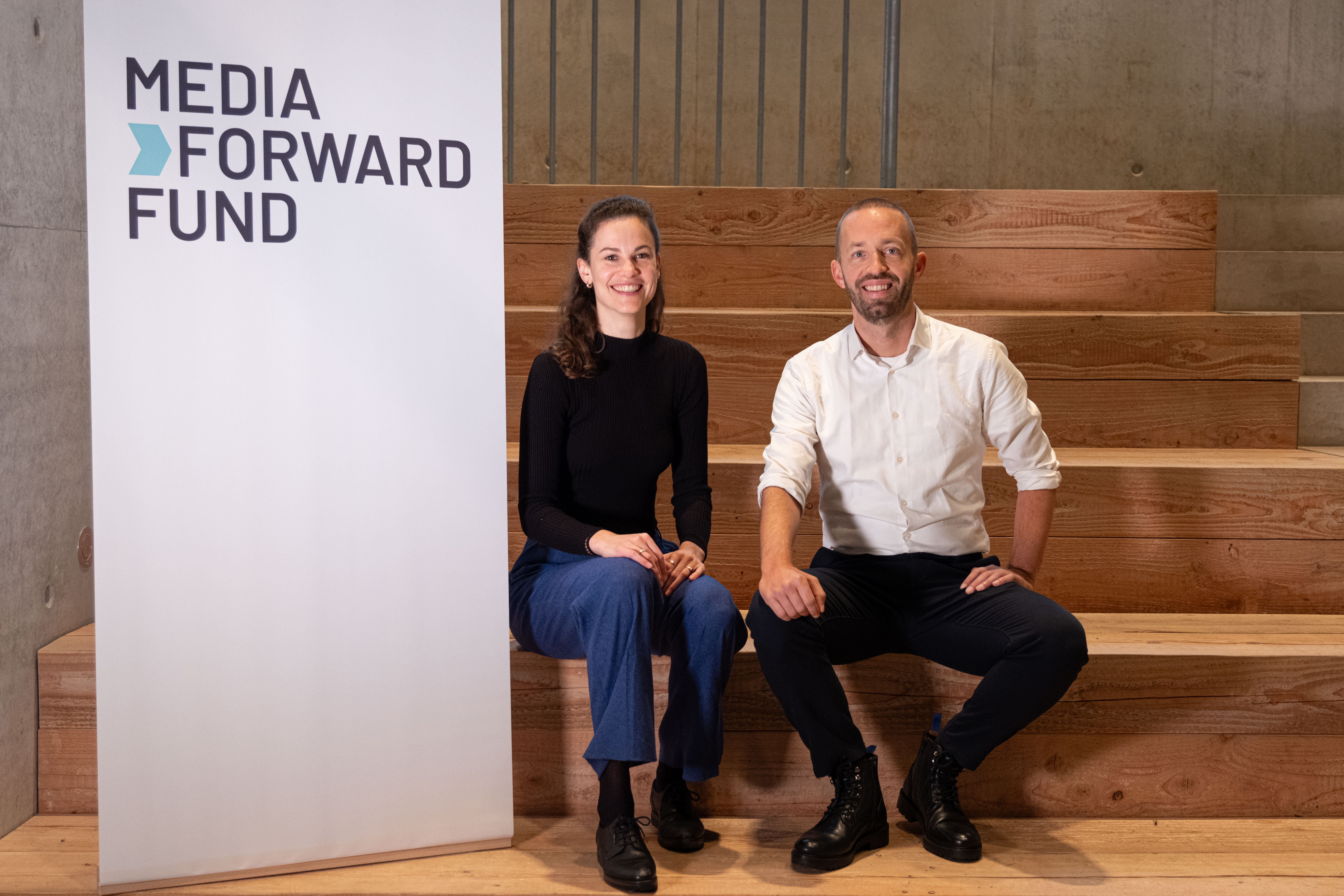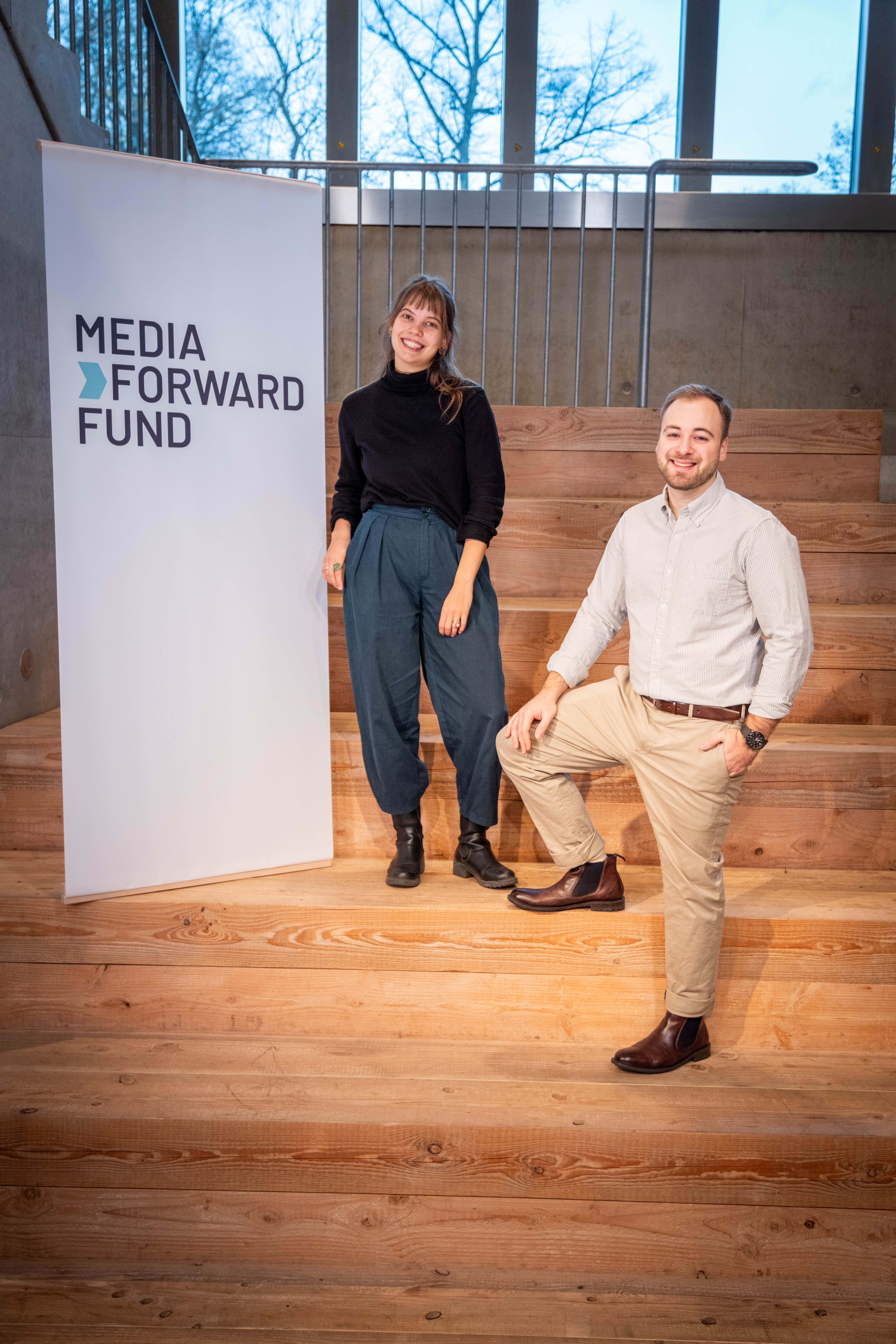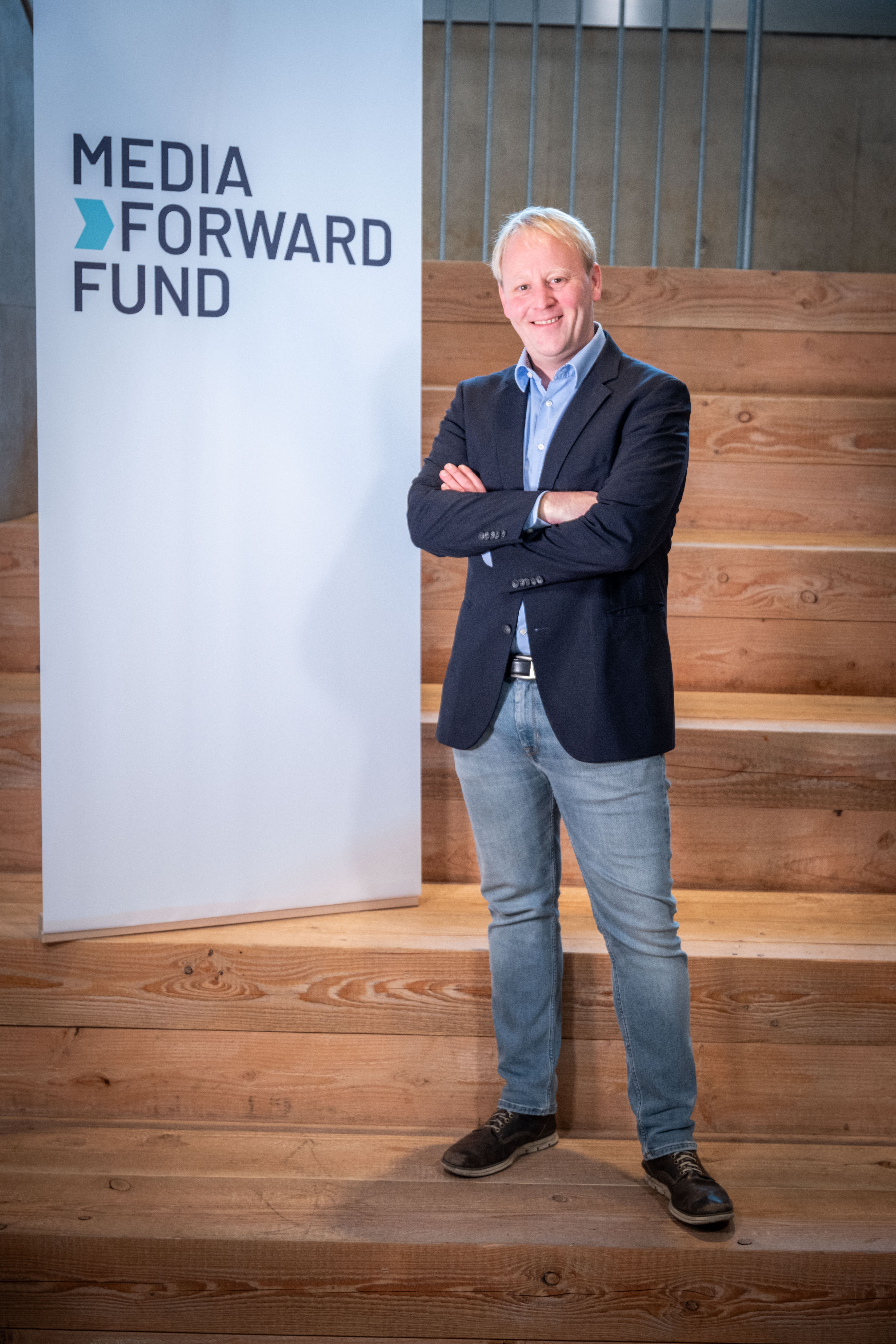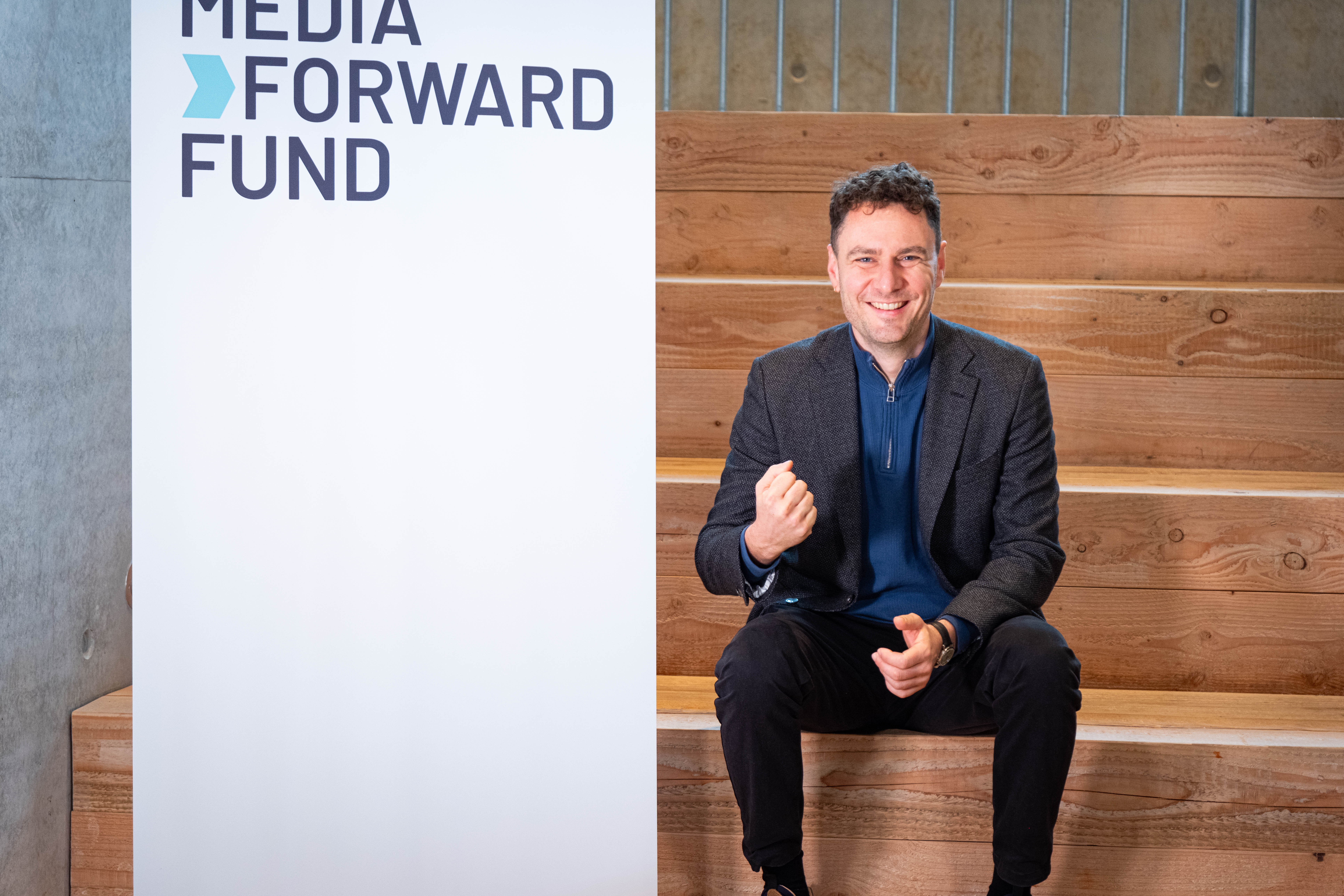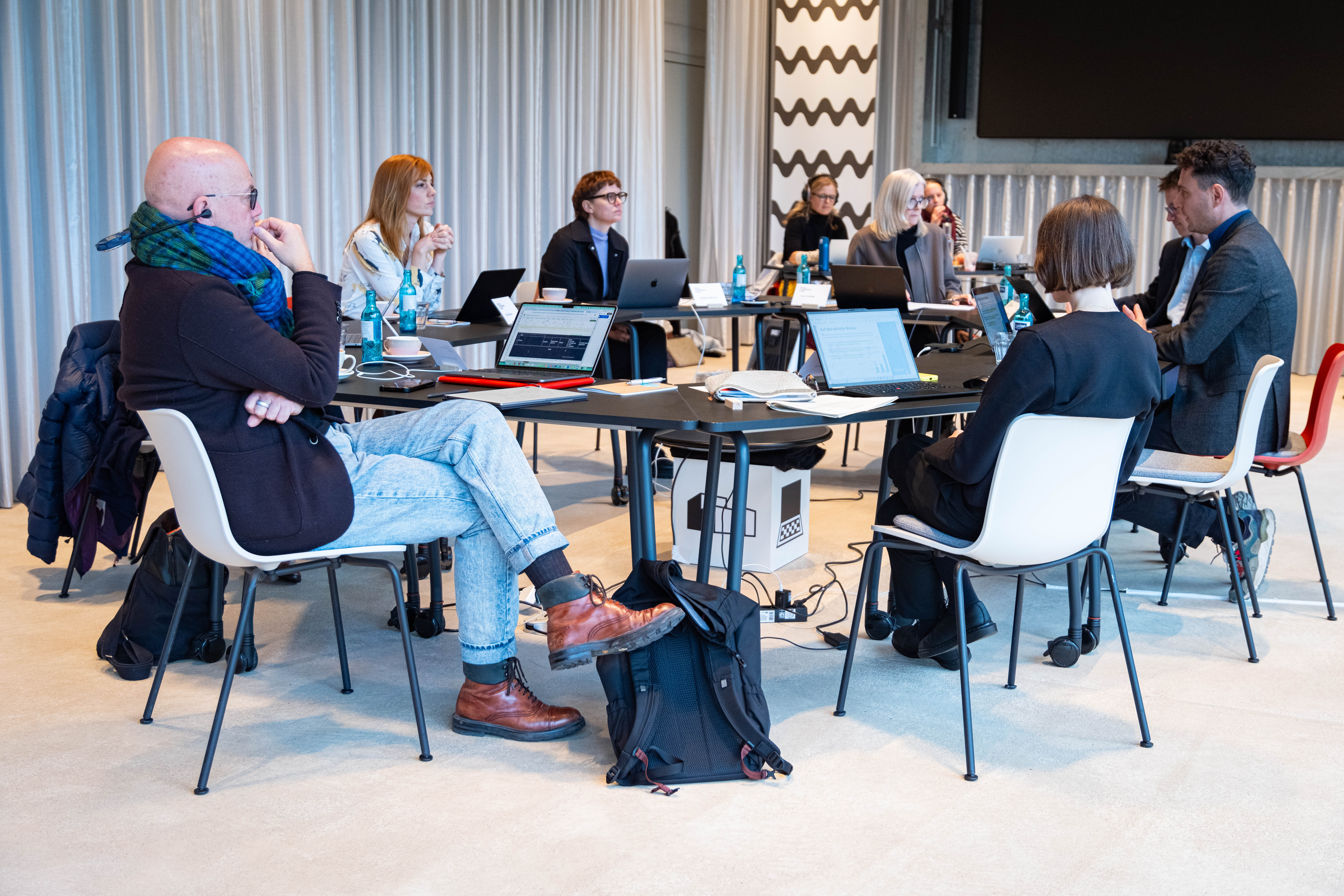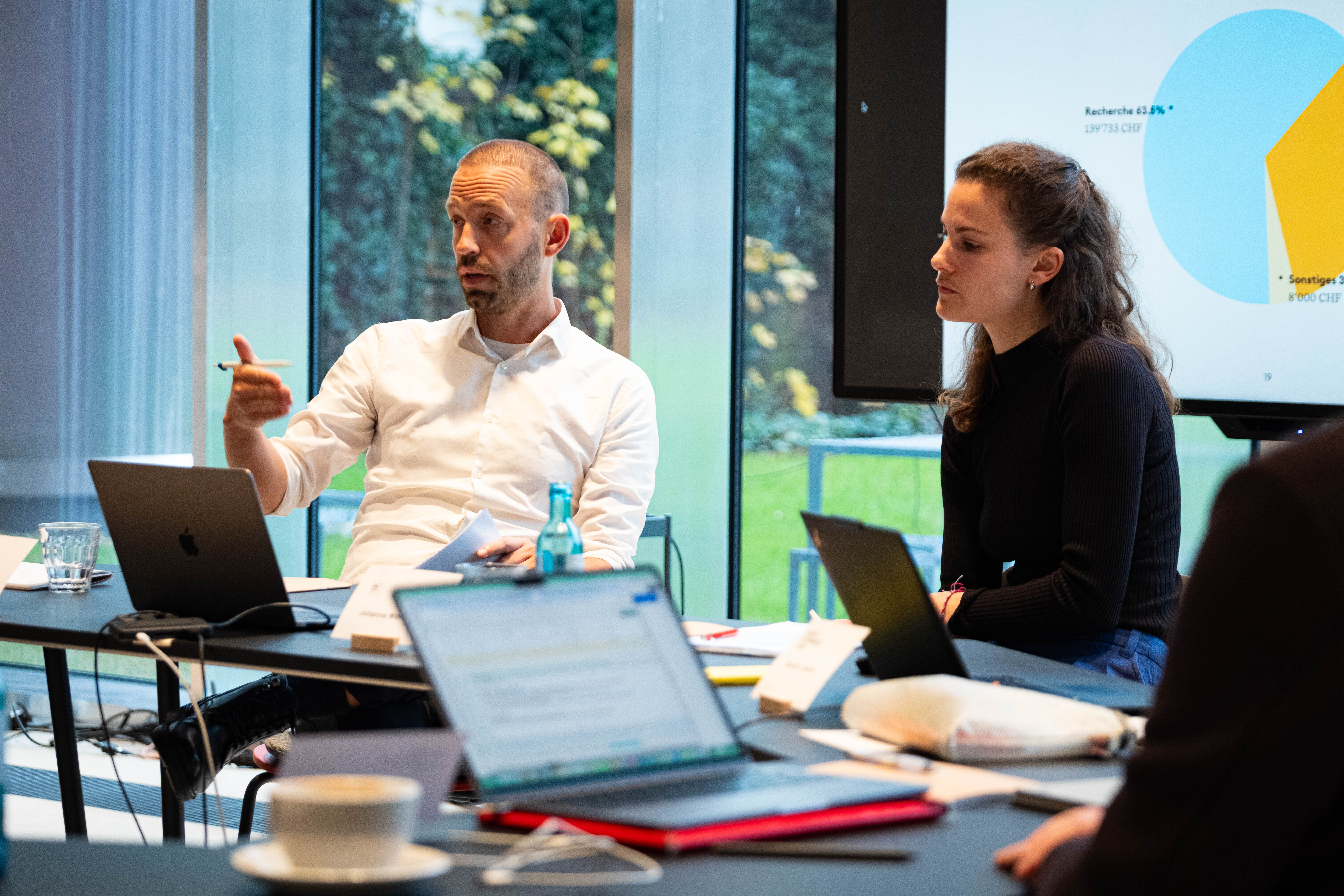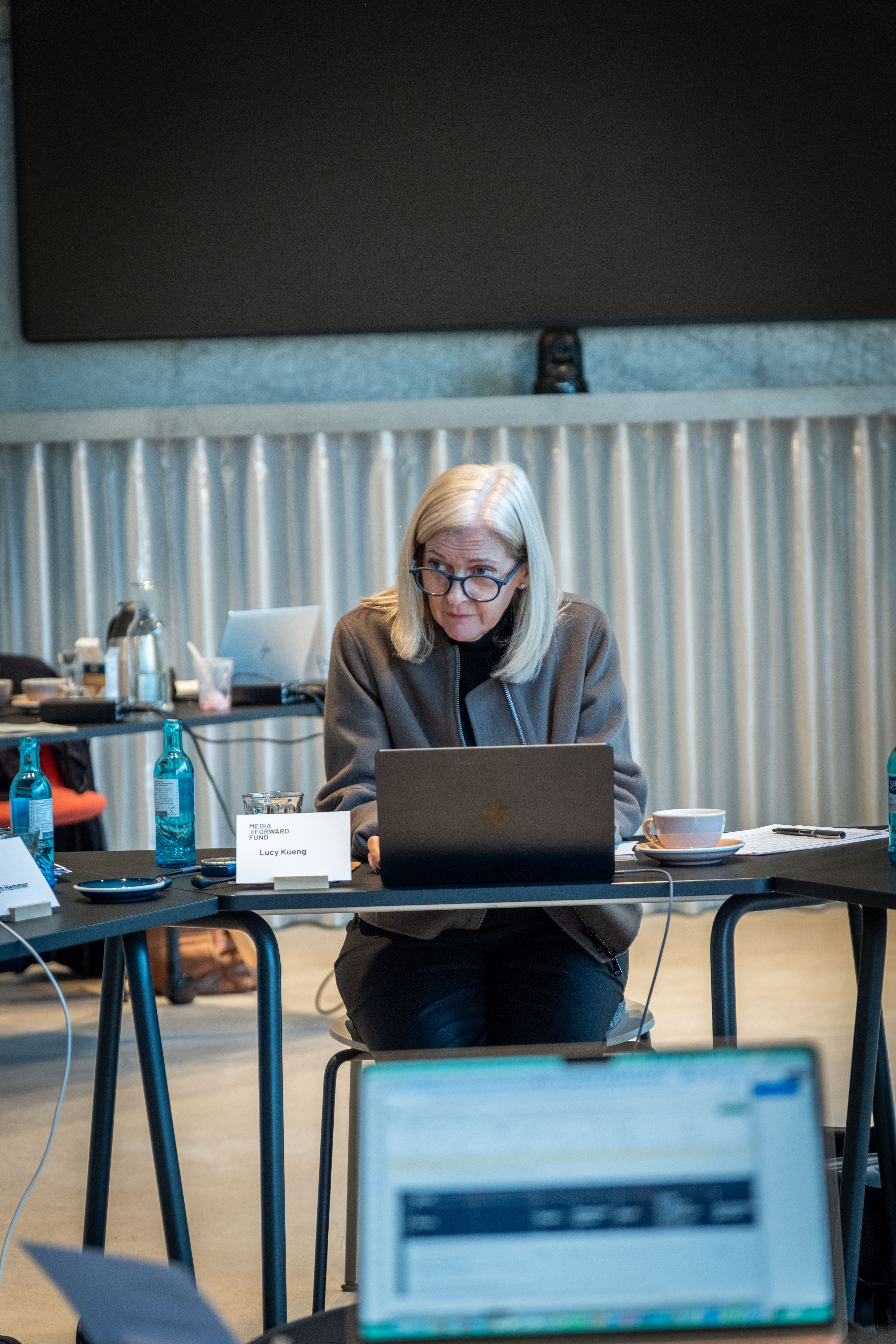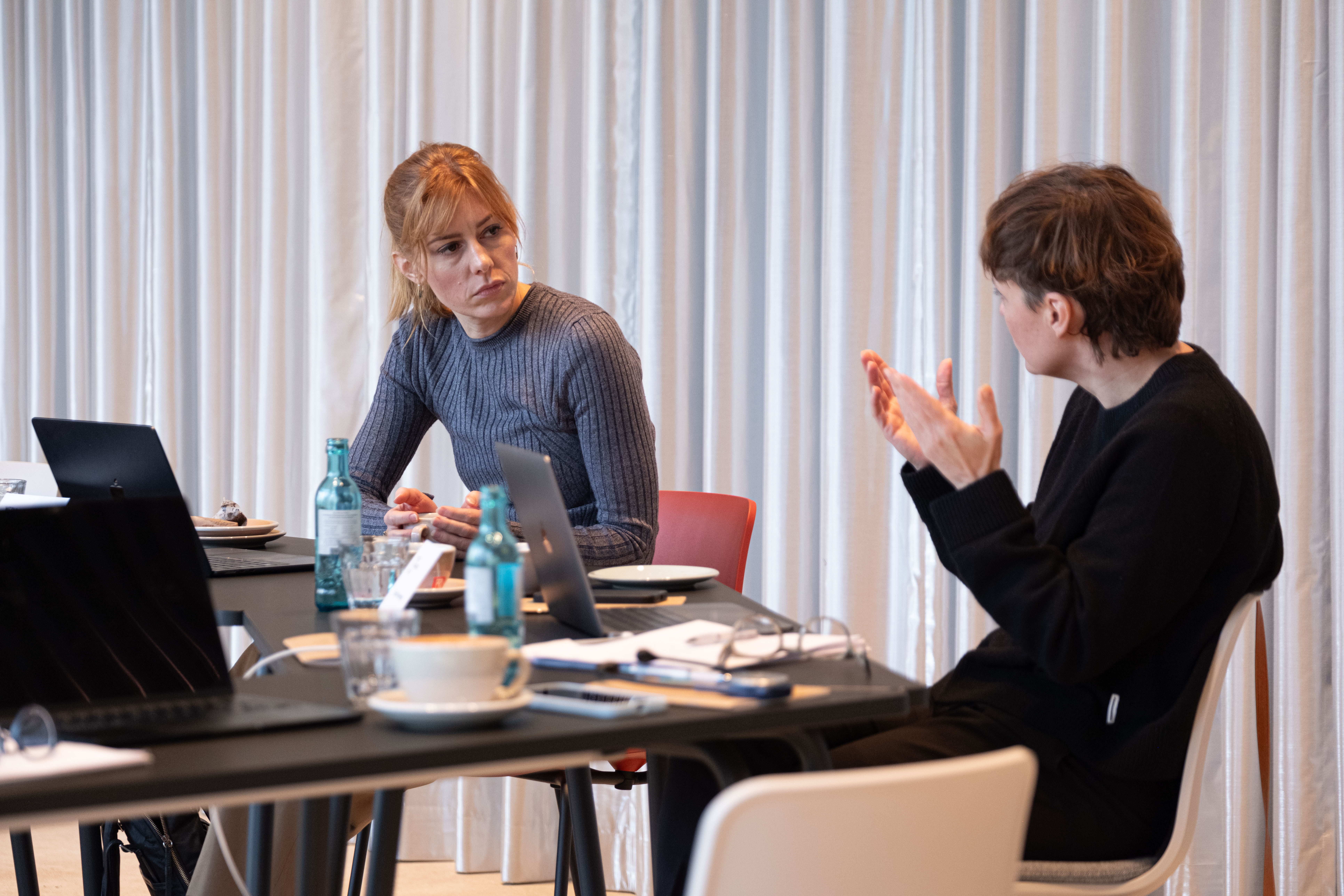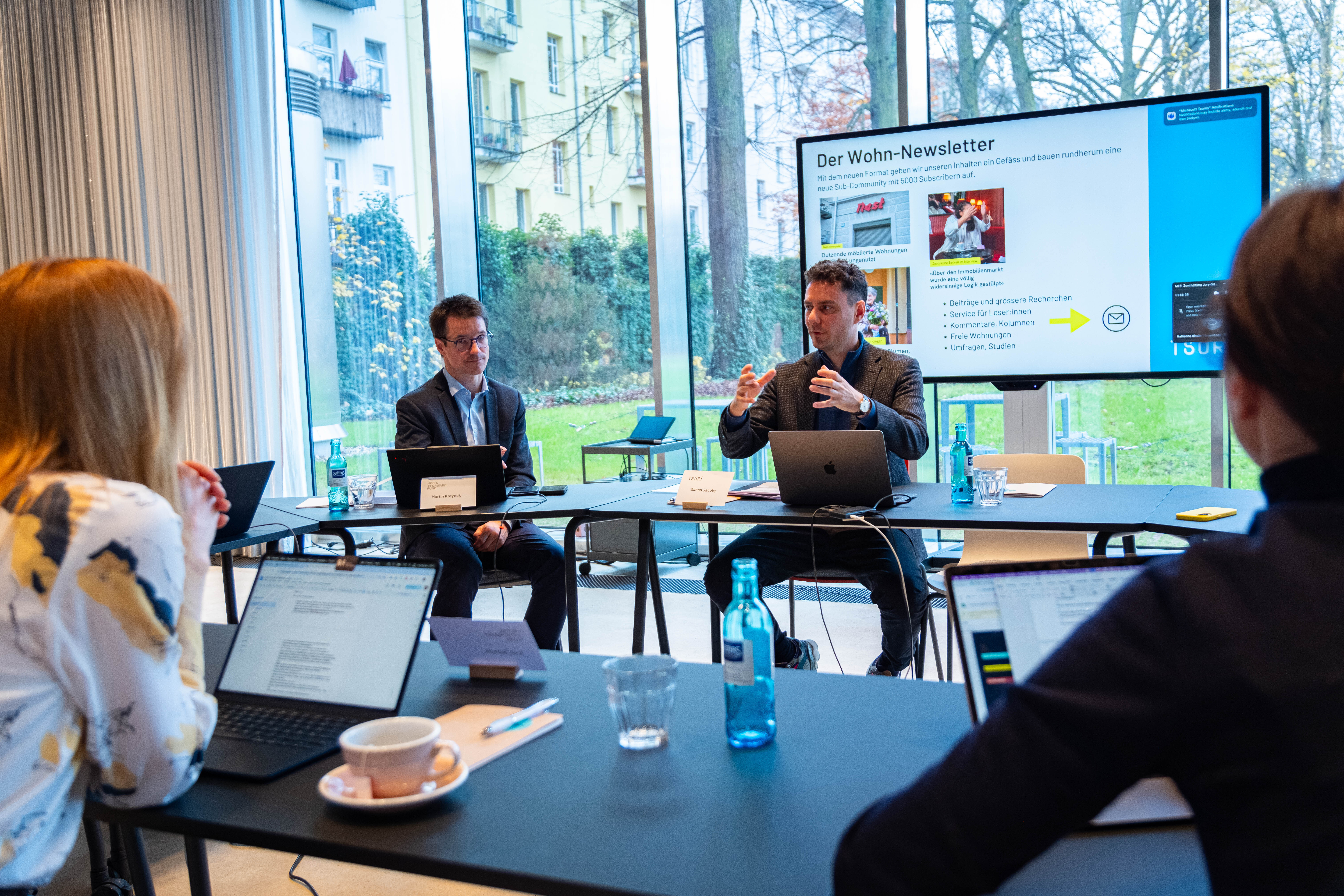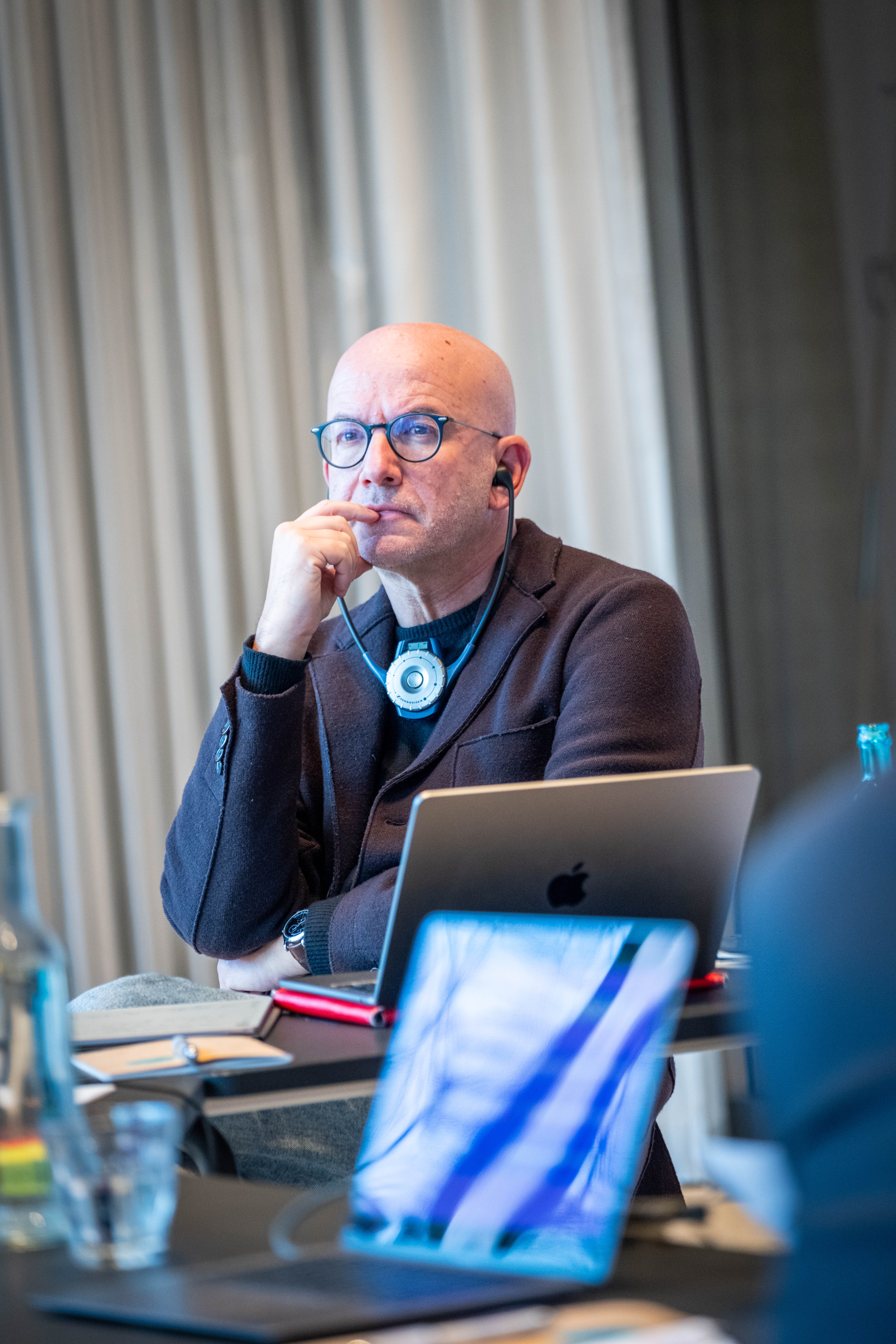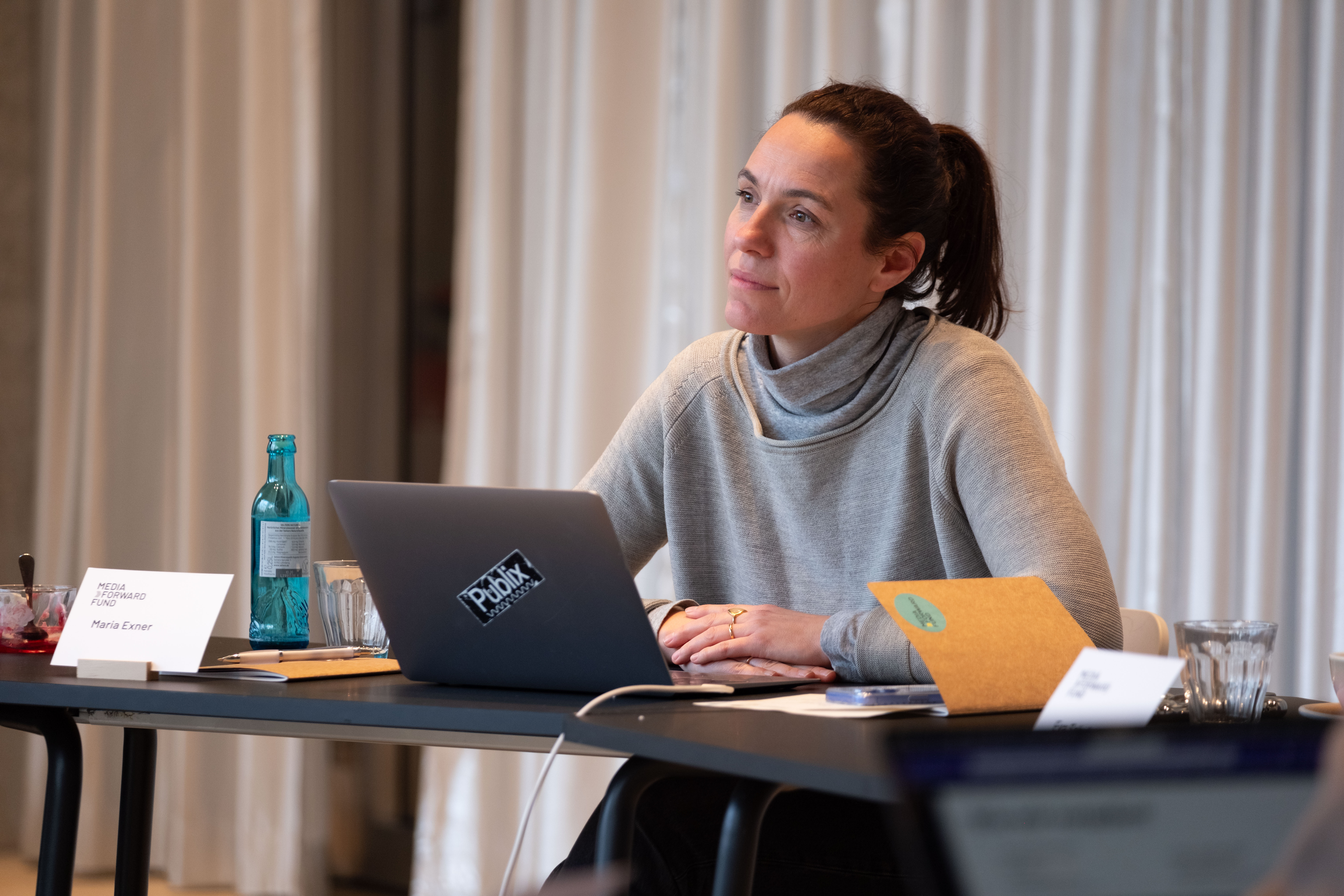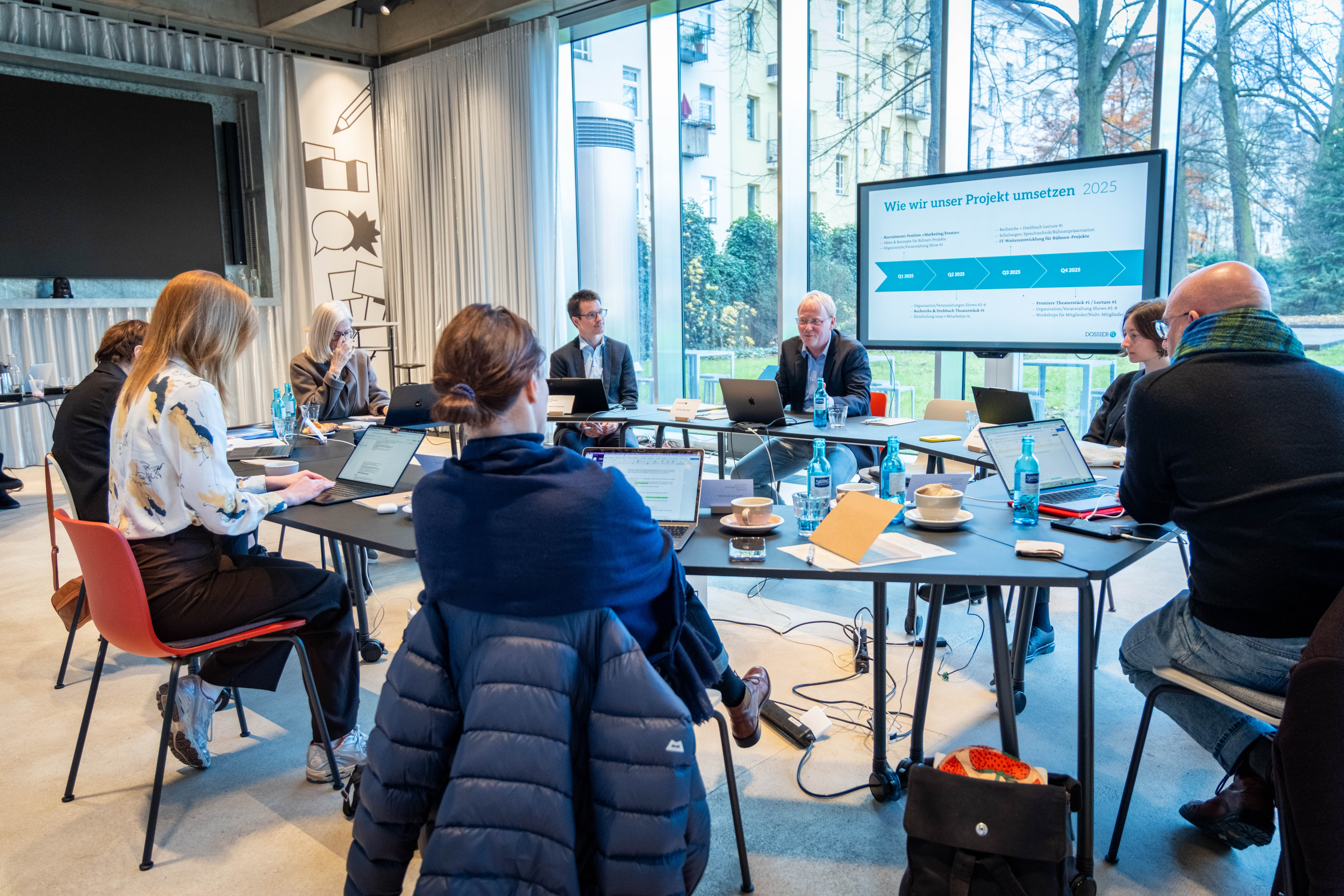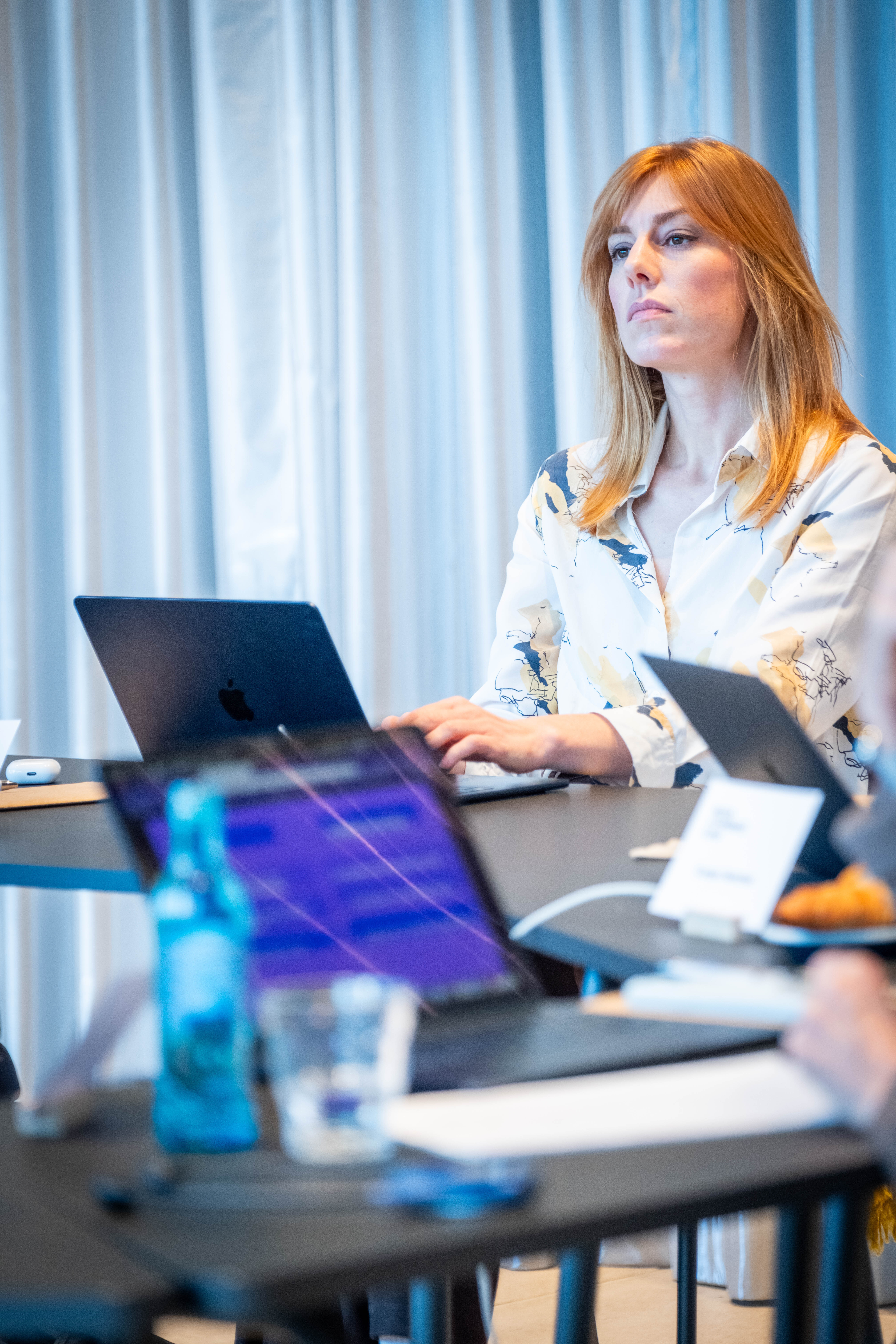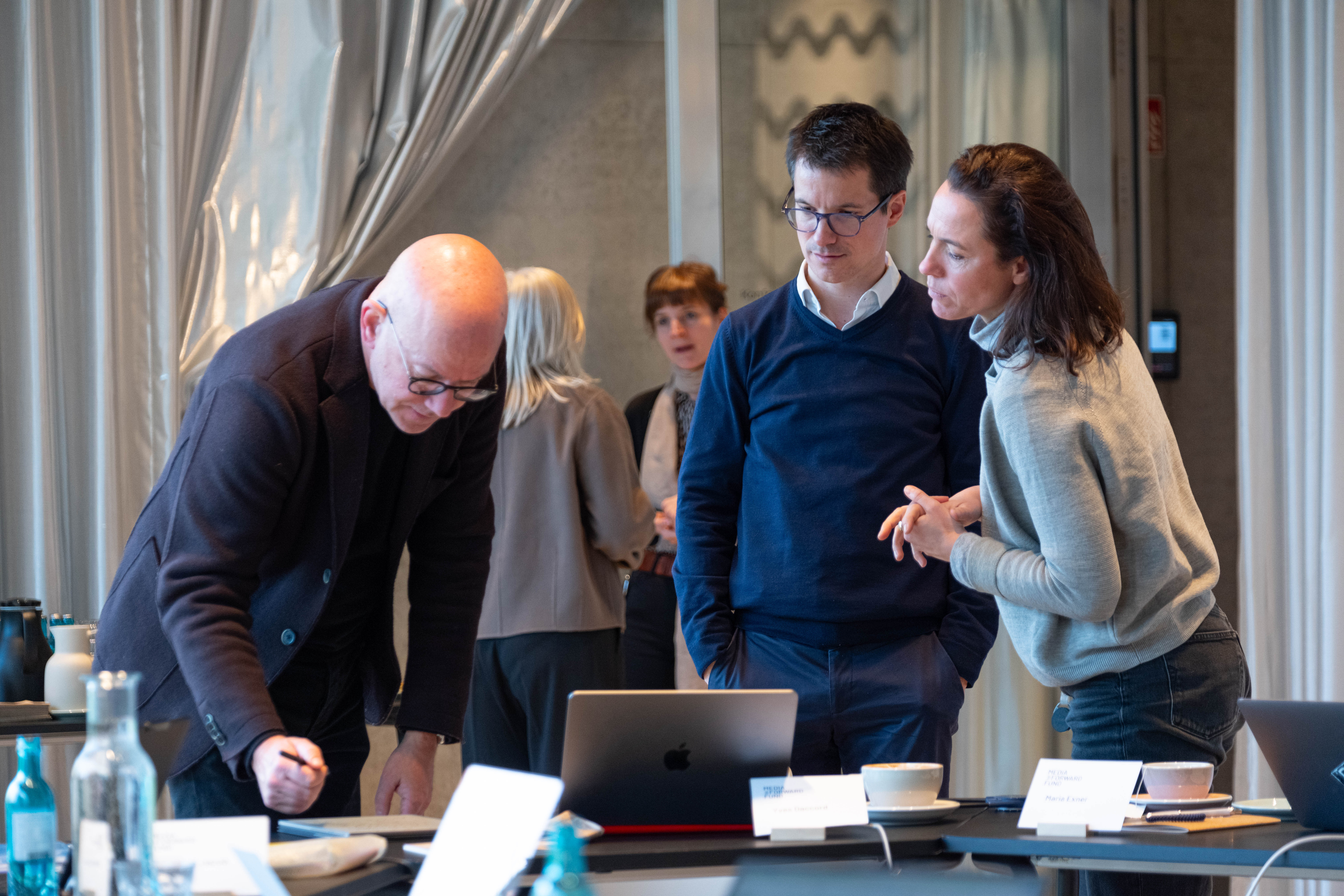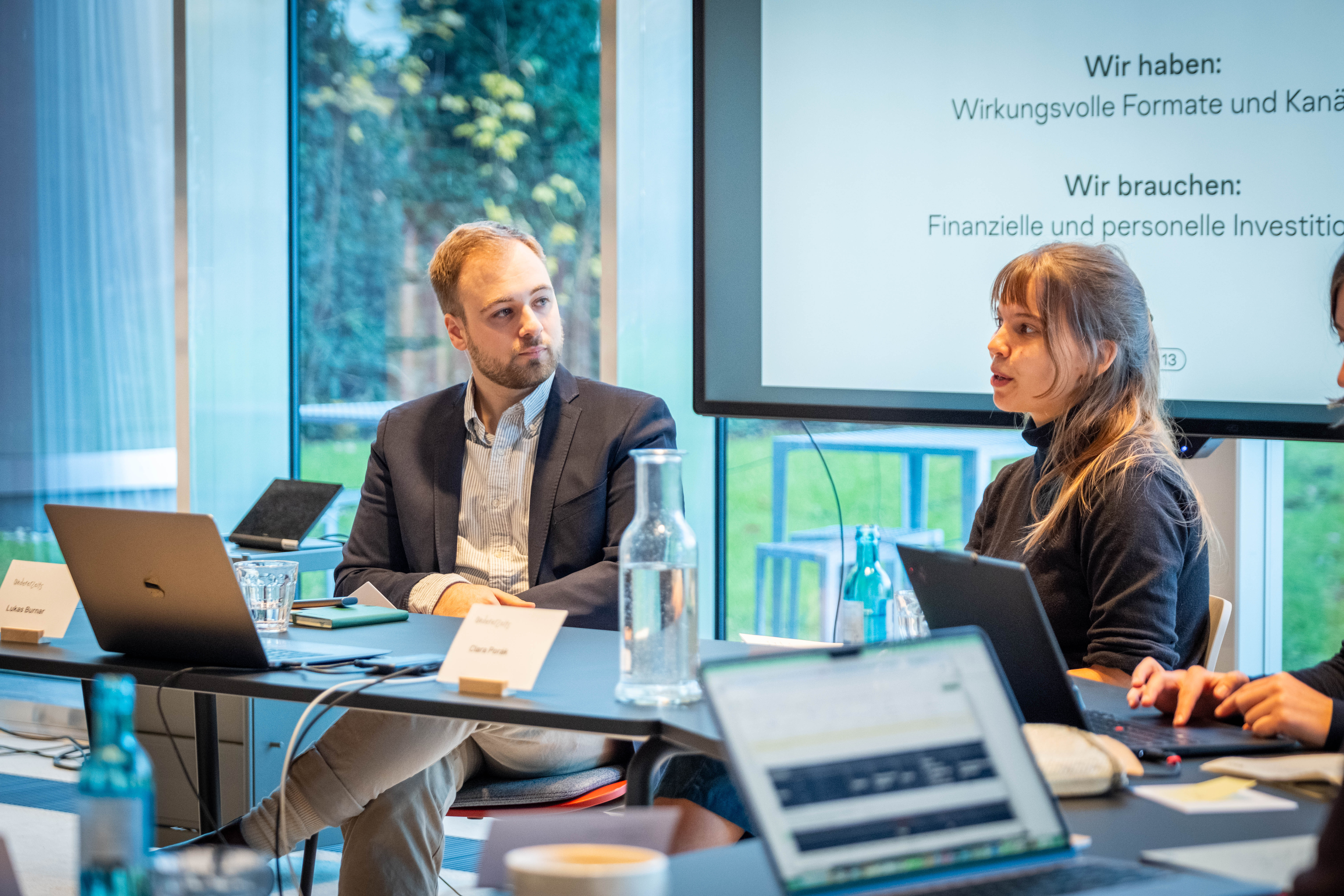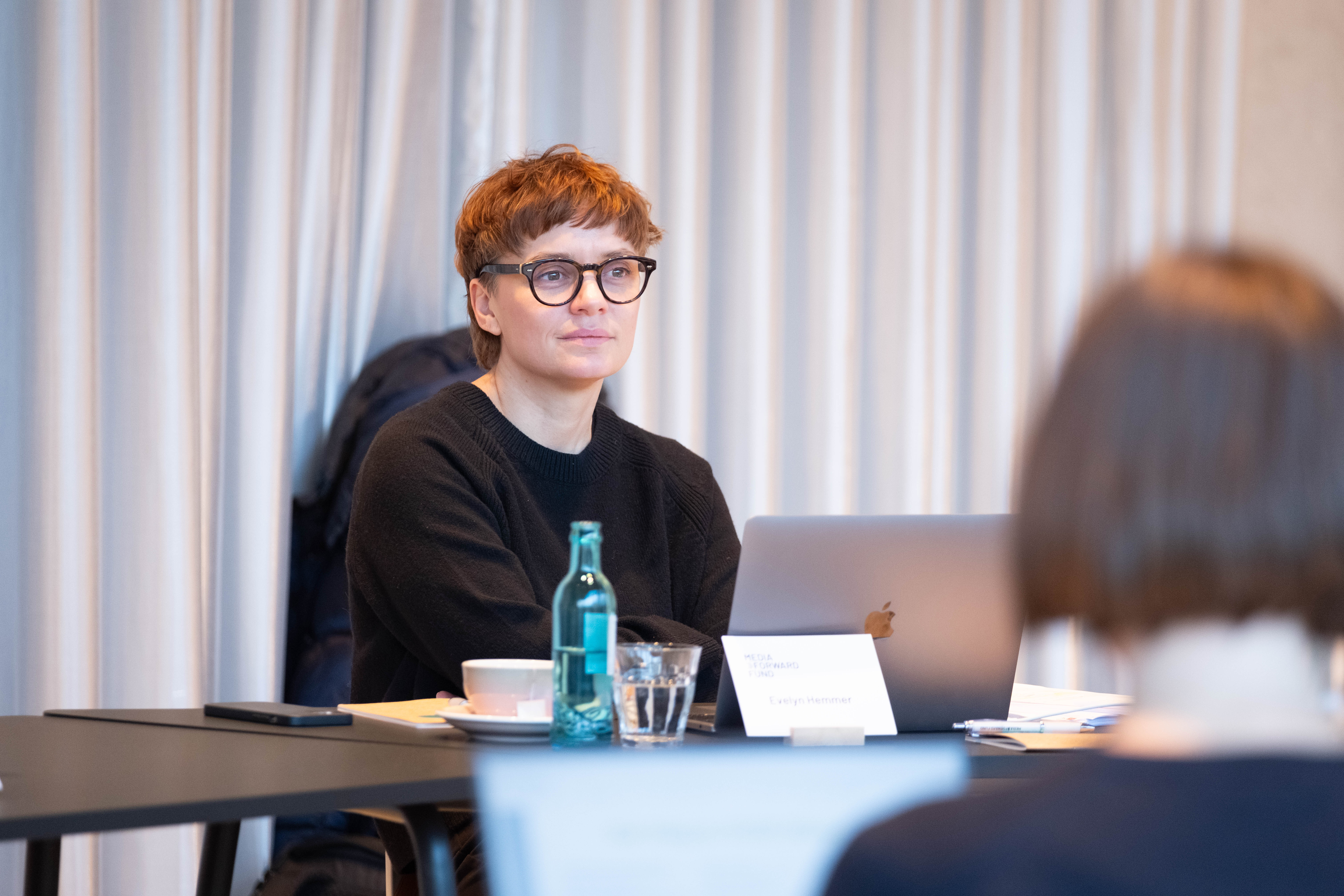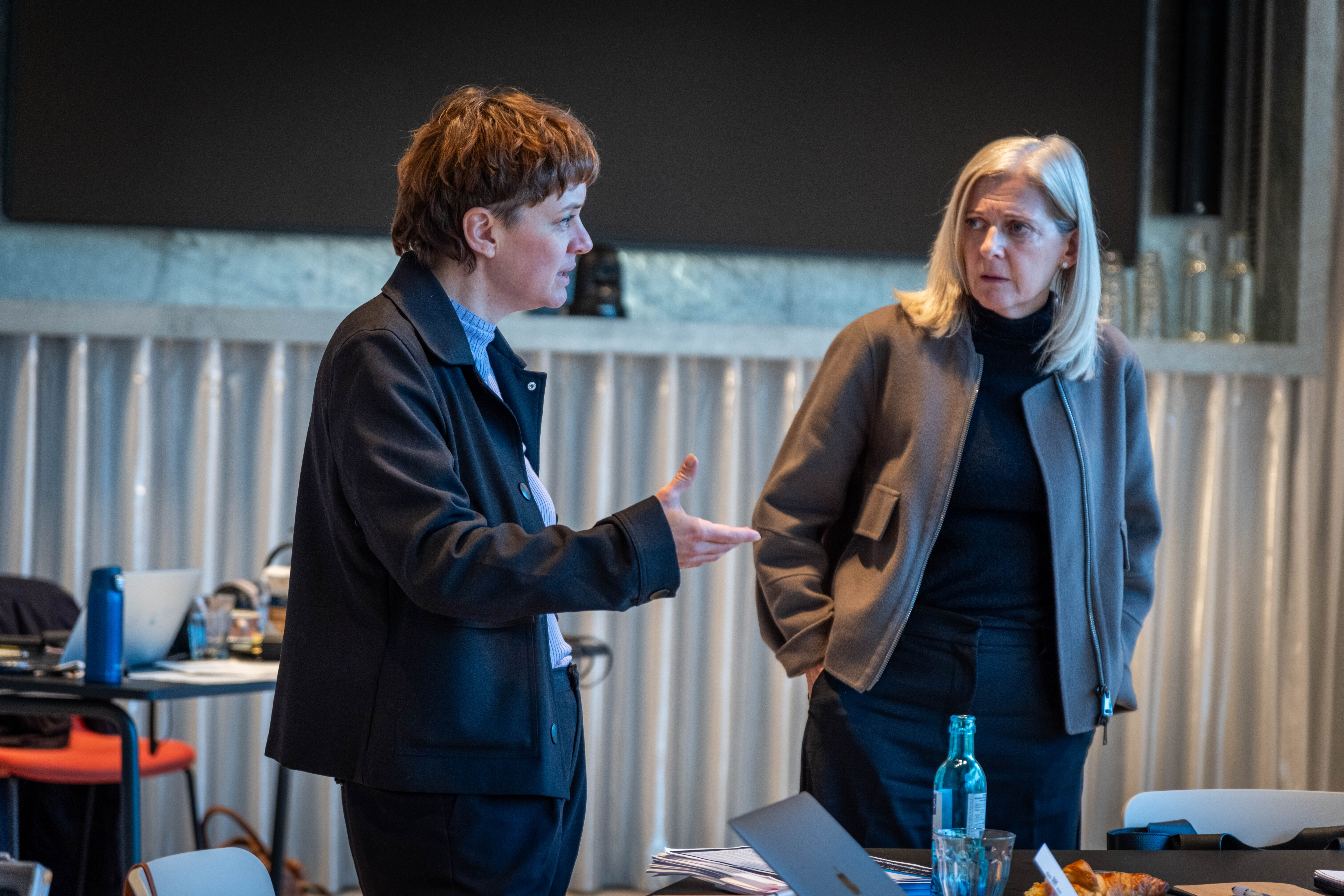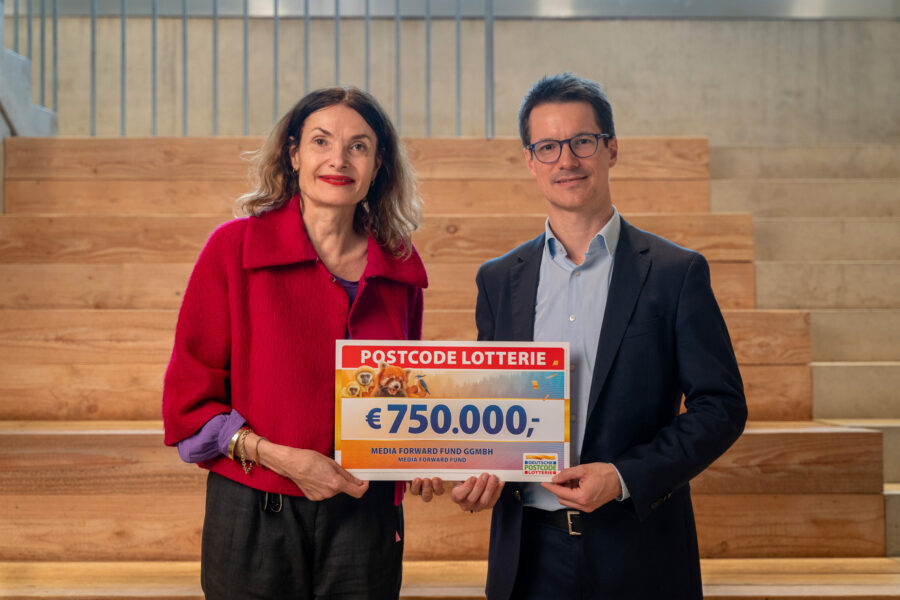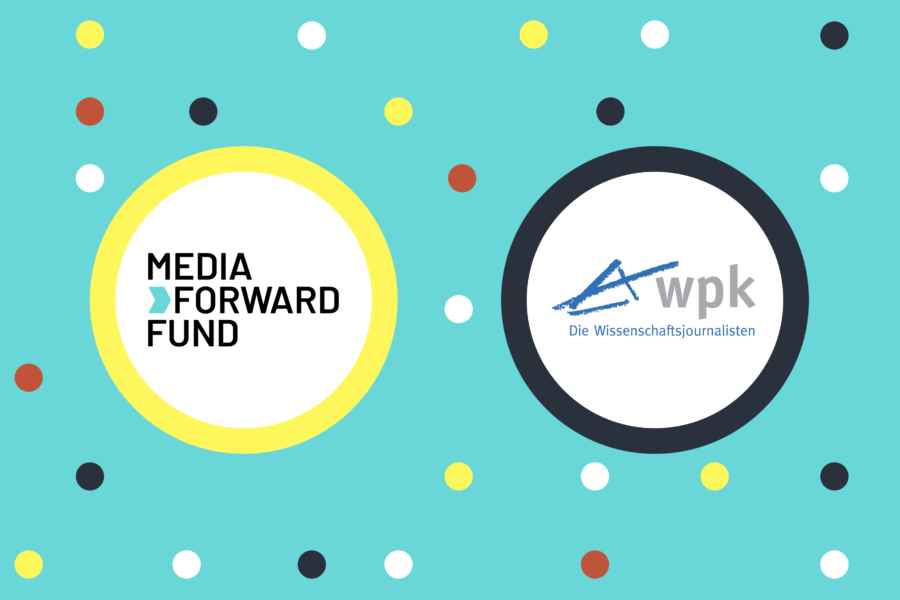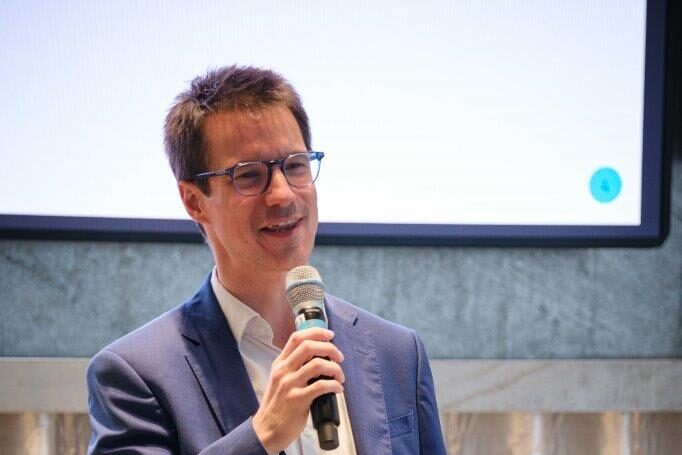The jury of the MFF decided: Four media organizations receive first grants
Two media organizations from Switzerland and two from Austria will each receive up to 400,000 euros in funding-- focus is on new methods to increase distribution channels that are in the public interest -- new applications for funding possible from March 2025
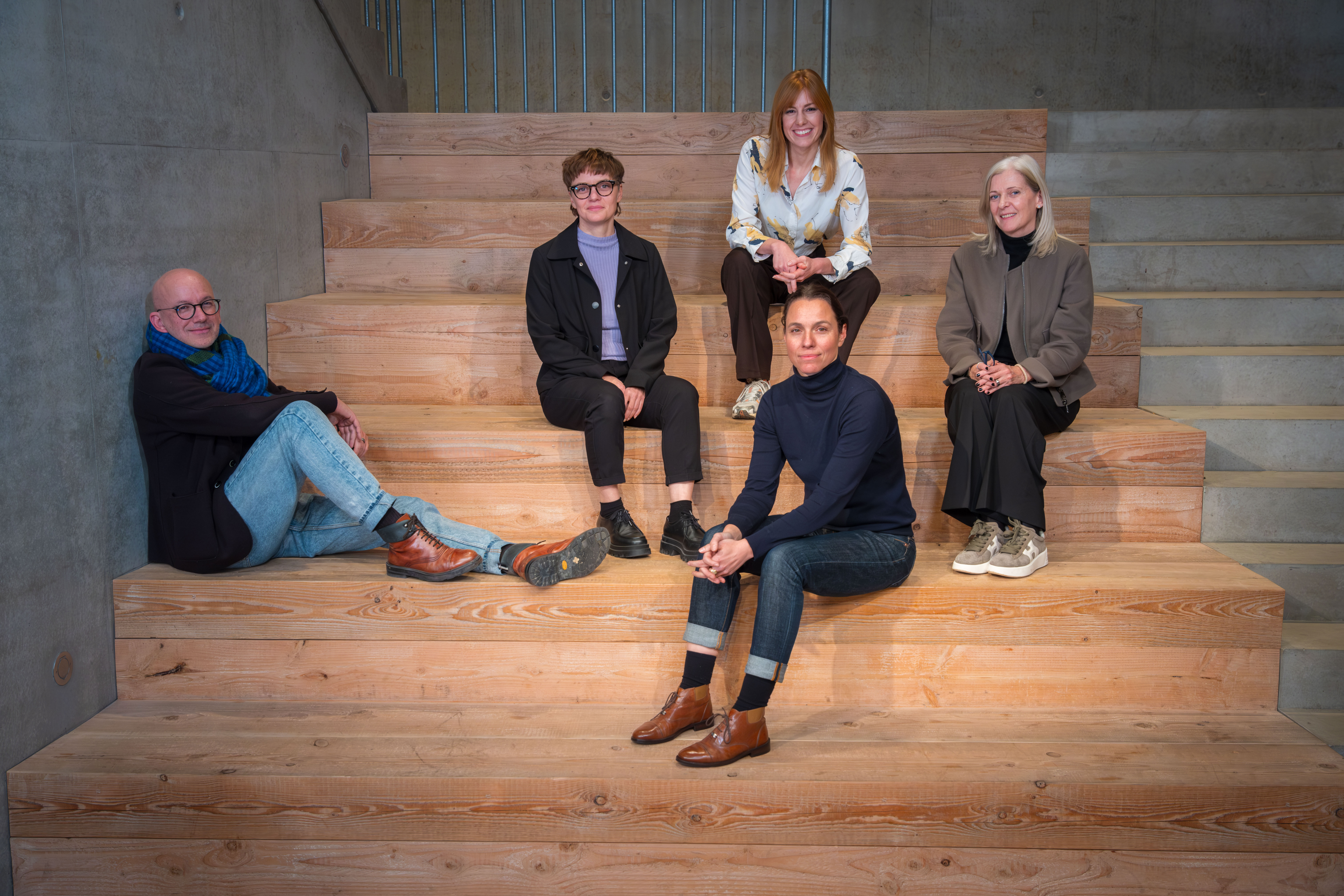
Berlin / Wien / Zürich – December 6, 2024: The Media Forward Fund (MFF), launched in July 2024, aims to strengthen public-interest journalism and democracy in Germany, Austria and Switzerland. The first grantees have been announced. Funding of up to 400,000 euros was awarded by the independent jury to four media organizations, two from Switzerland and two from Austria. These four public interest media organizations are using four different approaches to explore new ways of expanding their distribution channels and increasing subscriptions or memberships.
Among the first four MFF grantees are two investigative media outlets; one media organization focuses on the “underserved community” of people with disabilities:
- The Swiss investigative media outlet Reflekt from Bern, which has been regularly uncovering grievances for more than five years and thereby achieving social impact, will receive 300,000 euros in funding. REFLEKT wants to expand its distribution channels (funnel) by working with high-reach hosts to make their investigative research accessible in social videos. Users attracted in this way will then be converted into paying supporters, also via crowdfunding.
- The Austrian ad-free investigative media outlet Dossier from Vienna, which has been reporting on corruption, exploitation and abuse of power for more than twelve years, is receiving 390,000 euros in funding. Dossier wants to increase its membership funnel by bringing its investigations to the theater stage.
- The Austrian media organization Medienhaus andererseits from Vienna, where people with and without disabilities have been writing for two years in an inclusive and community-based editorial team for a print magazine, two newsletters and investigative research, is receiving 400,000 euros in funding. Andererseits would like to expand its distribution channels for subscriptions with a newsletter for the “underserved community” of people with disabilities.
- With the Swiss local medium Tsüri from Zurich, which has been publishing information for a predominantly young target group for ten years, the MFF is entering into a cooperation with a financial contribution of 400,000 euros. Workshops and prototypes are to be used to discover how a hyperlocal niche theme can expand the distribution channel to gain more members.
“The Media Forward Fund has selected four highly promising projects from 136 applications. These initiatives will provide valuable lessons on the most sustainable ways to finance public interest journalism through new distribution channels,“ explains Martin Kotynek, founding director of the Media Forward Fund: “Thanks to our funding, as well as coaching, capacity building and training, the four media organizations will be able to develop their business models, thereby strengthening their financial independence and, consequently, their editorial autonomy.”
The next call for applications opens in March 2025 and will be complemented by information sessions and training courses. Applicants who have not been awarded funding by the jury can request a feedback meeting. Re-applications are possible.
Projects & jury statement: About the grantees
Reflekt
To increasingly reach younger target groups with their investigative research in the future, the investigative medium Reflekt will use the MFF funding to focus more on the production of investigative video content for social media in cooperation with high-reach hosts. Reflekt has already delivered a successful proof of concept for this with the much-noticed “Kein Freund und Helfer” (“Not a friend and helper”) video. The overarching goal of the investigative medium is to at least double its audience and thus also its paying members by increasing its reach on social media and also through crowdfunding.
“The jury members were impressed by the combination of investigative work with high relevance and the creative translation of investigations into social videos." They were particularly interested in “how host strategies can be used effectively in the future to reach a younger audience with investigative journalism.”
Dossier
The investigative medium Dossier from Austria delivered a successful proof of concept with the play „Der Aufstieg und Fall des Herrn René Benko“ (“The Rise and Fall of Mr. René Benko”) in cooperation with the Vienna Volkstheater. On this basis, Dossier wants to extend the dissemination of its investigative methods and work to the theater stage, in the spirit of slow journalism for a diverse audience. With three different live journalism formats, the aim is to attract additional paying members and open up further sources of income.
"By bringing its journalistic work to the stage and thus (back) into the analog world, Dossier is exploring new ways of connecting with its audience and stimulating a deeper engagement with the results of their investigations and its impact on society," highlighted the jury: "If the planned live journalism formats succeed, a completely new journalistic genre with immersive character could emerge and prove a new, public interest-oriented revenue model for the whole sector."
Medienhaus andererseits
To make the perspective of people with disabilities more visible in journalism, people with disabilities research and write in the editorial team of the inclusive community medium Medienhaus andererseits. In addition to a print magazine and two newsletters, Andererseits also publishes investigative reports in cooperation with large media outlets. With the MFF funding, Andererseits aims to triple the number of its paying subscribers. To this end, a relaunch of the newsletter and the development of new formats for social media are planned during the funding period. User surveys are intended to establish a solid database to advance general knowledge about independent and community-financed journalism that is inclusive and diverse.
The jury was particularly positive about "the submitted project design as evidence of the organization's highly professional approach and strong focus on users." "In contrast to many other media, Andererseits is successful in producing genuine and credible inclusive journalism in line with quality journalistic standards, even if this is more time-consuming and therefore more cost-intensive", the jury explained. "The project therefore not only fulfills an important pioneering function, but also has the potential to offer possible approaches for a more inclusive development of the journalistic sector."
Tsüri
With its “Züri Briefing”, a daily newsletter containing important information about the city, the digital city magazine Tsüri reaches a predominantly young target group in Zurich. In future, Tsüri will regularly publish a new hyperlocal newsletter devoted to a relevant niche topic: the city's housing crisis. Thanks to the strong local relevance of this topic, the goal is to more than double the number of its paying members. MFF will support Tsüri in this endeavor as a cooperation partner, through training and workshops on hyperlocal journalism. The transfer of knowledge gained from this project will be shared within the community of public-interest media in Germany, Austria and Switzerland.
“Tsüri is so far exemplary for financially sustainable and profitable local journalism based on an authentic and credible narrative,” states the jury in its statement. “Dedicating itself to an even more hyperlocal topic in the future in order to attract additional members is an exciting experiment that few have dared to undertake to date.”
What the first call for applications looked like
Grantees of the first call were selected following a five-stage process: Of 136 applications (corresponding to an overall financial need of 40 million euros), 52 media organizations were invited to initial interviews. On the basis of eligibility and selection criteria, 26 applications with a total funding requirement of 9 million euros were approved for application following an eligibility check and numerous initial interviews. The ten finalists - three from Germany, two from Austria and five from Switzerland - finally presented their concepts to the five-member MFF jury in Berlin at the end of November. An Expert council consisting of 14 experts from Germany, Austria and Switzerland advised the MFF management team on the assessment of the applications and the preparation for the jury briefing.
How the MFF works
The Media Forward Fund is open for projects of public interest media organizations after the idea phase - as soon as a proof of concept is established and, in the best case, an initial test of the product/market fit are available. In particular, media that fill gaps in local and national reporting are eligible for funding. Special attention is paid to target groups that have previously had little access to journalism.
For small non-profit media with up to 30 full-time employees in the entire organization - the fund provides organizational funding of up to 400,000 euros per grantee. For-profit media organizations oriented towards the common good can apply for project funding, which, depending on the size of the medium, must be co-financed on a 50:50 ratio from own funds. In addition to financial support, the fund offers organizational support, for example with regard to media law or business model development.
For the award of grants, criteria have been defined in the areas of transformation, user focus, diversity, independence and quality. The aim is to support public-interest media that sustainably strengthen the media landscape and its role in society. Compliance with the press code of the respective national press councils and an effective error culture are among the requirements placed on applicants. Additional points are awarded for certain criteria, such as reporting for “underserved communities”, i.e. migrant groups or target groups in rural areas.
With representatives in French-speaking Switzerland and East Germany, the MFF aims to take greater account of the particularities of these regions, such as the multilingualism of the Swiss media landscape.
About the members of the jury
- Yves Daccord, Swiss journalist and television producer, former Director General of the International Committee of the Red Cross, international strategist in the non-profit sector, influencer and changemaker. Yves Daccord founded and directs the Edgelands Institute, Harvard University's first pop-up institute. A journalist by training, he was until recently Chairman of the Board of Directors of the media group that owns the leading local newspaper “Le Temps” in French-speaking Switzerland and the newly created local digital medium “Heidi.News”.
- Maria Exner is the director of Publix, the new House for Journalism & the Public Sphere in Berlin, which opened a few weeks ago. Born in Dresden, she was previously Co-Editor-in-Chief of “ZEIT-Magazin” and Deputy Editor-in-Chief of “Zeit Online”, where she developed journalistic dialog formats such as “Deutschland spricht”.
- Lucy Kueng, Professor and Senior Visiting Research Associate at the Reuters Institute for the Study of Journalism at Oxford University and member of the Board of Directors of the “Neue Zürcher Zeitung”. As an expert in strategy, innovation and leadership, she advises leading media companies on the strategy and implementation of digital transformation, including the BBC, CNN, NPR, NRK, SVT and Schibsted.
- Evelyn Hemmer,Innovation manager with many years of experience in media funding. As Chief Operating Officer, she is currently using her experience in the start-up “Hashtag Media”, which produces innovative digital journalism primarily on social media. Prior to this, the Austrian has built up the “Wiener Medieninitiative" ("Vienna Media Initiative”) of the City of Vienna's Business Agency since it was founded and has supported more than 200 media start-ups and projects there.
- Eva Schulz, Political journalist with extensive experience in moving image and audio journalism, founder of the video format “Deutschland3000”. Her podcast “Deutschland3000 - 'ne gute Stunde mit Eva Schulz” (NDR) is one of the most successful German interview podcasts with more than 15 million views. As a reporter, she was recently on the road in Thuringia, Saxony and Brandenburg for the new ZDF documentary series “Deutschland, warum bist du so?” (“Germany, why are you like this?”).
About the Media Forward Fund
The first transnational fund for funding journalism in Germany, Austria and Switzerland is committed to contributing to more high-quality independent media with viable business models, which publish strong, trustworthy content and are sustainably financed. The aim is to strengthen diversity in public interest journalism, and thus democracy.
The Media Forward Fund was established as a non-profit fund in July 2024 on the initiative of the Schöpflin Stiftung, Stiftung Mercator Schweiz, Volkart Stiftung, ZEIT STIFTUNG BUCERIUS, Rudolf Augstein Stiftung, MacArthur Foundation, ERSTE Stiftung, Allianz Foundation, Stiftung für Medienvielfalt, DATUM-STIFTUNG für Journalismus und Demokratie, as well as by social impact investor Karma Capital Group and Publix - House for Journalism and the Public Sphere, and has been endowed with nine million euros to date.
The development of the fund was supported by the German Federal Government Commissioner for Culture and the Media with project funding. The first call for applications was launched in July 2024 and it is planned to run three calls per year in the future. Grants generally amount to 400,000 euros per medium. The next call is scheduled for mid-March, with an additional funding line planned for science journalism.
Contact details for journalists:
LOEBELL NORDBERG
Annabel Loebell
Tel: +43-676-6904023
E-Mail: al@loebellnordberg.com

